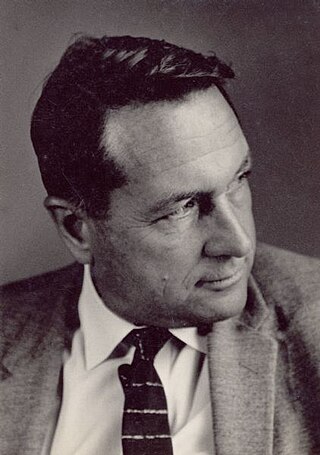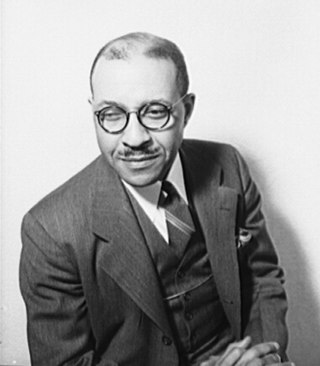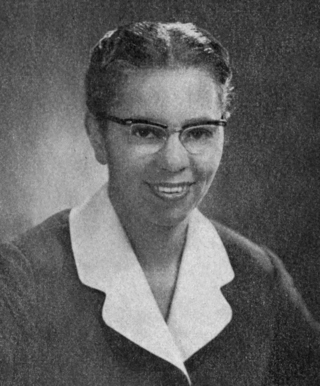
The civil rights movement was a nonviolent social movement and campaign from 1954 to 1968 in the United States to abolish legalized racial segregation, discrimination, and disenfranchisement in the country. The movement had its origins in the Reconstruction era during the late 19th century and had its modern roots in the 1940s, although the movement made its largest legislative gains in the 1960s after years of direct actions and grassroots protests. The social movement's major nonviolent resistance and civil disobedience campaigns eventually secured new protections in federal law for the civil rights of all Americans.

The Student Nonviolent Coordinating Committee was the principal channel of student commitment in the United States to the civil rights movement during the 1960s. Emerging in 1960 from the student-led sit-ins at segregated lunch counters in Greensboro, North Carolina, and Nashville, Tennessee, the Committee sought to coordinate and assist direct-action challenges to the civic segregation and political exclusion of African Americans. From 1962, with the support of the Voter Education Project, SNCC committed to the registration and mobilization of black voters in the Deep South. Affiliates such as the Mississippi Freedom Democratic Party and the Lowndes County Freedom Organization in Alabama also worked to increase the pressure on federal and state government to enforce constitutional protections.

The Congress of Racial Equality (CORE) is an African-American civil rights organization in the United States that played a pivotal role for African Americans in the civil rights movement. Founded in 1942, its stated mission is "to bring about equality for all people regardless of race, creed, sex, age, disability, sexual orientation, religion or ethnic background."

James Morris Lawson Jr. is an American activist and university professor. He was a leading theoretician and tactician of nonviolence within the Civil Rights Movement. During the 1960s, he served as a mentor to the Nashville Student Movement and the Student Nonviolent Coordinating Committee. He was expelled from Vanderbilt University for his civil rights activism in 1960, and later served as a pastor in Los Angeles for 25 years.

Freedom Summer, also known as the Freedom Summer Project or the Mississippi Summer Project, was a volunteer campaign in the United States launched in June 1964 to attempt to register as many African-American voters as possible in Mississippi. Blacks had been restricted from voting since the turn of the century due to barriers to voter registration and other laws. The project also set up dozens of Freedom Schools, Freedom Houses, and community centers such as libraries, in small towns throughout Mississippi to aid the local Black population.

The National Urban League, formerly known as the National League on Urban Conditions Among Negroes, is a nonpartisan historic civil rights organization based in New York City that advocates on behalf of economic and social justice for African Americans and against racial discrimination in the United States. It is the oldest and largest community-based organization of its kind in the nation. Its current President is Marc Morial.

Myles Falls Horton was an American educator, socialist, and co-founder of the Highlander Folk School, famous for its role in the Civil Rights Movement. Horton taught and heavily influenced most of the era's leaders. They included Martin Luther King Jr., Rosa Parks, John Lewis, James Bevel, Bernard Lafayette, and others who would create the Nashville Student Movement, Ralph Abernathy, John B. Thompson, and many others.

Robert Parris Moses was an American educator and civil rights activist known for his work as a leader of the Student Nonviolent Coordinating Committee (SNCC) on voter education and registration in Mississippi during the Civil Rights Movement, and his co-founding of the Mississippi Freedom Democratic Party. As part of his work with the Council of Federated Organizations (COFO), a coalition of the Mississippi branches of the four major civil rights organizations, he was the main organizer for the Freedom Summer Project.

Louise Alone Thompson Patterson was a prominent American social activist and college professor. Patterson's early experiences of isolation and persecution on the West Coast had a profound impact on her later activism. She recognized the ways in which racism and discrimination affected individuals and communities and dedicated her life to challenging these systems of oppression. Her involvement in the Harlem Renaissance, a period of intellectual and cultural awakening in African American communities, allowed her to connect with other artists and activists who were similarly committed to social justice. In addition to her notable contributions to civil rights activism, Thompson Patterson was also recognized as one of the pioneering Black women to be admitted to the University of California at Berkeley.

Charles Spurgeon Johnson was an American sociologist and college administrator, the first black president of historically black Fisk University, and a lifelong advocate for racial equality and the advancement of civil rights for African Americans and all ethnic minorities. He preferred to work collaboratively with liberal white groups in the South, quietly as a "sideline activist," to get practical results.

Aaron Henry was an American civil rights leader, politician, and head of the Mississippi branch of the NAACP. He was one of the founders of the Mississippi Freedom Democratic Party which tried to seat their delegation at the 1964 Democratic National Convention.
The Chicago Freedom Movement, also known as the Chicago open housing movement, was led by Martin Luther King Jr., James Bevel and Al Raby. It was supported by the Chicago-based Coordinating Council of Community Organizations (CCCO) and the Southern Christian Leadership Conference (SCLC). The movement included a large rally, marches, and demands to the City of Chicago. These specific demands covered a wide range of areas besides open housing, and included quality education, transportation and job access, income and employment, health, wealth generation, crime and the criminal justice system, community development, tenants rights, and quality of life. Operation Breadbasket, in part led by Jesse Jackson, sought to harness African-American consumer power. The Chicago Freedom Movement was the most ambitious civil rights campaign in the North of the United States, lasted from mid-1965 to August 1966, and is largely credited with inspiring the 1968 Fair Housing Act.
Freedom Schools were temporary, alternative, and free schools for African Americans mostly in the South. They were originally part of a nationwide effort during the Civil Rights Movement to organize African Americans to achieve social, political and economic equality in the United States. The most prominent example of Freedom Schools was in Mississippi during the summer of 1964.
Liberalism in the United States is based on concepts of unalienable rights of the individual. The fundamental liberal ideals of freedom of speech, freedom of the press, freedom of religion, the separation of church and state, the right to due process, and equality under the law are widely accepted as a common foundation of liberalism. It differs from liberalism worldwide because the United States has never had a resident hereditary aristocracy, and avoided much of the class warfare that characterized Europe. According to American philosopher Ian Adams, "all U.S. parties are liberal and always have been. Essentially they espouse classical liberalism, that is a form of democratised Whig constitutionalism plus the free market. The point of difference comes with the influence of social liberalism and the proper role of government."
Politics is the process by which groups of people make decisions. Although the term is generally applied to behavior within civil governments, politics is observed in all human group interactions, including corporate, academic, and religious institutions. Politics consists of "social relations involving authority or power. The definition of "politics" from "The Free Dictionary" is the study of political behavior and examines the acquisition and application of power. Politics study include political philosophy, which seeks a rationale for politics and an ethic of public behavior, and public administration, which examines the practices of governance.

Charles E. "Charlie" Cobb Jr. is a journalist, professor, and former activist with the Student Nonviolent Coordinating Committee (SNCC). Along with several veterans of SNCC, Cobb established and operated the African-American bookstore Drum and Spear in Washington, D.C., from 1968 to 1974. Currently he is a senior analyst at allAfrica.com and a visiting professor at Brown University.
Howard Fuller is a civil rights activist, education reform advocate, and academic. He is best known for the community organizing work he did in Durham, North Carolina, as an employee of Operation Breakthrough, and as a co-founder of the Malcolm X Liberation University in 1969. In the 1970s, Fuller adopted the name Owusu Sadaukai, organized several national African Liberation Day celebrations, and was one of the foremost advocates of Pan-Africanism in the United States. Decades later, Fuller rose again to national prominence as one of the leading advocates for school vouchers. He served as the superintendent of Milwaukee Public Schools from 1991-1995 and is currently a distinguished professor of education, and founder/director of the Institute for the Transformation of Learning at Marquette University in Milwaukee, Wisconsin.

Willa Beatrice Player was an American educator, college administrator, college president, civil rights activist, and federal appointee. Player was the first African-American woman to become president of a four-year, fully accredited liberal arts college when she took the position at Bennett College in Greensboro, North Carolina.

Heather Booth is an American civil rights activist, feminist, and political strategist who has been involved in activism for progressive causes. During her student years, she was active in both the civil rights movement and feminist causes. Since then she has had a career involving feminism, community organization, and progressive politics.

Dorie Ann Ladner is an American civil rights activist.















